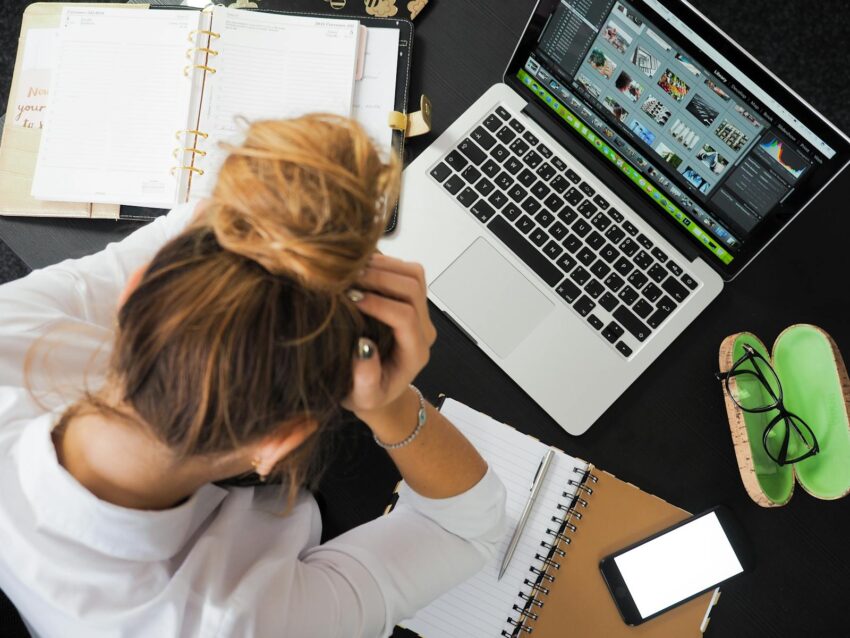Anxiety is a natural response to stress. It helps us prepare for challenges, stay alert, and protect ourselves from danger. But when anxiety becomes overwhelming, constant, or disrupts daily life, it may signal an anxiety disorder. The good news is that anxiety is highly treatable. With the right combination of therapy, medication, and self-care, people can manage symptoms and regain control of their lives.
How Common Is Anxiety?
Anxiety disorders are the most common mental health conditions worldwide. According to the World Health Organization (WHO), about 301 million people live with an anxiety disorder globally【WHO, 2022】. In the U.S., the National Institute of Mental Health (NIMH) estimates that 31% of adults experience an anxiety disorder at some point in their lives【NIMH, 2022】.
These numbers highlight the importance of awareness and accessible treatment options.
Therapy Options for Anxiety
Cognitive Behavioral Therapy (CBT)
CBT is one of the most effective treatments for anxiety. It focuses on identifying negative thought patterns and replacing them with healthier ones. CBT also teaches practical coping strategies, such as relaxation techniques and problem-solving skills.
Research in Dialogues in Clinical Neuroscience shows that CBT can significantly reduce anxiety symptoms, with long-lasting effects even after therapy ends【Hofmann et al., 2012】.
Exposure Therapy
Exposure therapy is often used for phobias, panic disorder, and social anxiety. It gradually exposes individuals to their fears in a safe environment. Over time, the brain learns that the feared situation is not as dangerous as it feels, reducing avoidance behaviors.
Acceptance and Commitment Therapy (ACT)
ACT teaches people to accept anxious thoughts rather than fight them. Through mindfulness and values-based living, individuals learn to move forward even when anxiety is present.
Group Therapy
Group settings offer support, shared experiences, and encouragement. Talking with others who face similar struggles can reduce feelings of isolation and shame.
Medication for Anxiety
Medication is often used when anxiety is severe or when therapy alone is not enough. It can help stabilize symptoms and make it easier to engage in therapy.
Common Types of Anxiety Medications
- SSRIs (Selective Serotonin Reuptake Inhibitors): Such as Prozac (fluoxetine) and Zoloft (sertraline). Often the first choice due to effectiveness and safety.
- SNRIs (Serotonin-Norepinephrine Reuptake Inhibitors): Such as Cymbalta (duloxetine) and Effexor (venlafaxine).
- Benzodiazepines: Such as Xanax (alprazolam) and Ativan (lorazepam). These work quickly but are prescribed short-term due to risk of dependence.
- Buspirone: A non-addictive medication used for generalized anxiety disorder.
- Beta-Blockers: Sometimes used for performance anxiety to control physical symptoms like a racing heart.
The American Psychiatric Association (APA) recommends combining medication with therapy for the best results, especially for moderate to severe anxiety【APA, 2020】.
Self-Care Strategies for Managing Anxiety
Professional treatment is vital, but self-care plays a big role in daily management. Healthy habits can reduce symptoms and build resilience over time.
1. Regular Exercise
Physical activity lowers stress hormones and increases endorphins, the body’s natural mood boosters. The Anxiety & Depression Association of America (ADAA) notes that exercise can reduce anxiety symptoms by up to 40% in some people【ADAA, 2020】. Even walking for 30 minutes a day can help.
2. Balanced Nutrition
Food affects mood and energy. Eating a diet rich in fruits, vegetables, lean proteins, and omega-3 fatty acids supports brain health. Limiting caffeine and sugar can also reduce jitters and mood swings.
3. Quality Sleep
Anxiety and sleep are closely connected. Poor sleep makes anxiety worse, and anxiety disrupts sleep. Aim for 7–9 hours per night by keeping a consistent bedtime, limiting screen use before bed, and creating a calm sleep environment.
4. Mindfulness and Relaxation
Meditation, yoga, and deep breathing calm the nervous system. A study in JAMA Internal Medicine found that mindfulness meditation reduces anxiety, depression, and stress【Goyal et al., 2014】.
5. Social Support
Strong relationships act as a buffer against stress. Spending time with friends, family, or joining support groups provides comfort and encouragement.
6. Journaling
Writing down thoughts and feelings can provide clarity, reduce overthinking, and make problems feel more manageable.
When to Seek Professional Help
It can be difficult to know when normal worry turns into an anxiety disorder. Signs it may be time to seek treatment include:
- Persistent symptoms lasting more than six months
- Anxiety interfering with work, school, or relationships
- Avoiding important activities because of fear
- Frequent panic attacks or intense physical symptoms
- Relying on alcohol, drugs, or excessive caffeine to cope
If anxiety feels unmanageable, reaching out to a doctor or therapist is a strong and important step.
Emergency Situations
Seek immediate help if:
- Anxiety leads to thoughts of self-harm or suicide
- Panic attacks cause chest pain, dizziness, or fainting
- Anxiety feels uncontrollable and overwhelming
In the U.S., you can dial 988 for the Suicide & Crisis Lifeline.
Combining Treatments for the Best Results
No single treatment works for everyone. The most effective approach often combines therapy, medication, and self-care. For example:
- Therapy provides tools to manage thoughts and behaviors.
- Medication reduces symptoms, making it easier to engage in therapy.
- Self-care builds resilience and prevents relapse.
According to the National Institute of Mental Health (NIMH), combining approaches gives the best chance for long-term recovery【NIMH, 2022】.
Conclusion
Anxiety may feel overwhelming, but it is treatable. With therapy, medication, and self-care, people can reduce symptoms, manage triggers, and regain balance in life.
The key message is this: you are not alone, and help is available. By reaching out for support and practicing healthy habits, recovery is possible.



